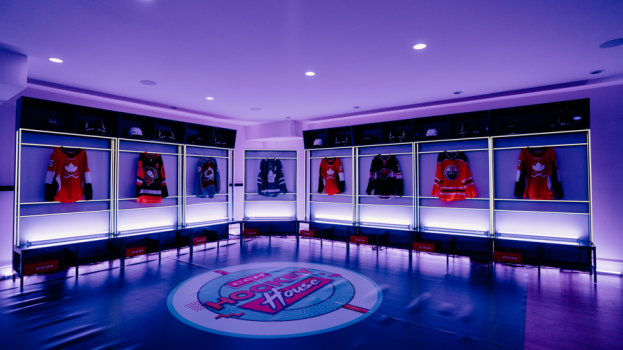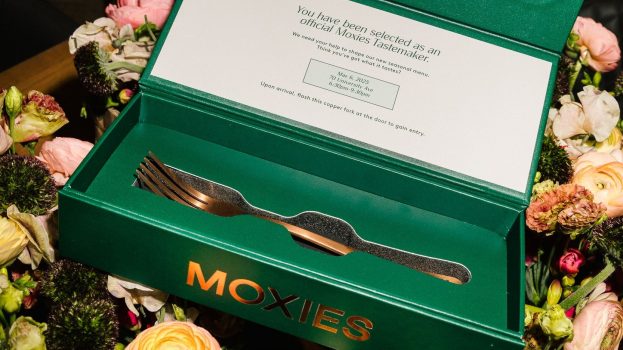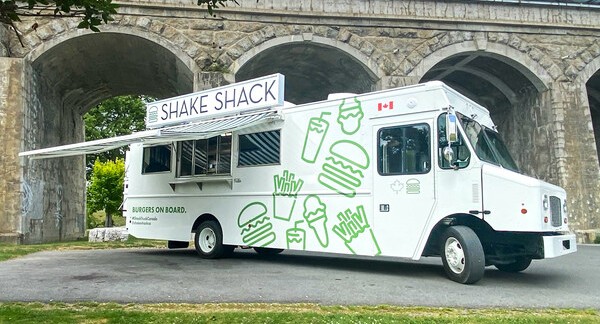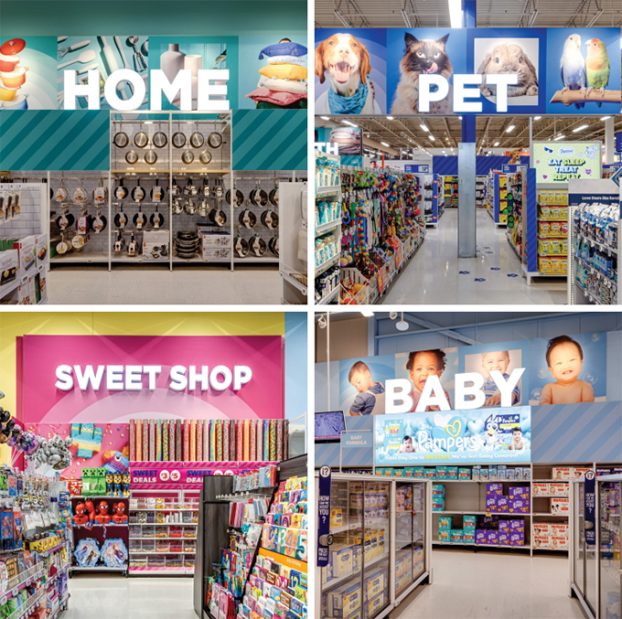This story originally appeared in the May 2019 issue of strategy.
A store is not just a store anymore.
Beyond thinking of physical retail as merely a “distribution channel” stores are now “a vital channel for the distribution of experiences,” says Doug Stephens, president at Retail Prophet. Indeed, in this age of online shopping-for-everything, retailers need far more than well-stocked shelves to convince people to leave the comforts of their home and shop IRL.
That’s why three legacy Canadian retailers are investing heavily into broadening the definition of retail – creating new places and spaces to work, stretch and climb.
Working to get people in the door
Staples has been known as a place to buy pens and paper and, well, staples since its first store opened in Canada in 1991. But now it’s trying to pivot from an “office-supply superstore to a working and learning company,” says David Boone, CEO of Staples Canada.
To get more people in the door, Staples has begun selling new services to business professionals on top of products, including jumping into the red-hot co-working space. The sleek new Staples Studio space at its recently refurbished store in Toronto includes access to a café, regular community events and workshops, as well as printing/marketing services.
And the bold pivot is really resonating with Canadians. About three months after unveiling the new concept, the Toronto location has seen double-digit growth in store traffic, says Boone, adding that similar changes are set to come to most of its 305 stores across Canada in the next 12- to 24-months.
Scaling to new heights
Vancouver-headquartered MEC, which first launched in 1971, long attracted Canadians with a strong whiff of granola and campfires. But that changed when the outdoor-gear retailer rebranded from Mountain Equipment Co-op to simply MEC in an effort to appeal more to active urbanites in 2013.
MEC’s new Toronto flagship opened in April and pays homage to its granola roots, while embracing its refined, urbanite image. The new flagship allows customers to try products that might be difficult to otherwise do in a city, by offering VR tents and a 1,000-square-foot bouldering wall. An open-concept community space dubbed Basecamp will also be used to host how-to clinics and community events to further the connection to active Torontonians.
Anne Donohoe, MEC’s CMO, explains the store on one of Canada’s premier shopping strips – Toronto’s Queen Street West – “is about having people connect to the experiences they’re going to have outdoors,” but also want to spend time in the store simply because “it’s an experience within itself.”

Stretching into new areas
Indigo Books & Music started out as a big-box bookstore in 1996, but now calls itself a “cultural department store.” Today, its 208 bricks-and-mortar stores – 119 of which are “superstores” – have jumped into the trendy wellness space.
Last year, CEO Heather Reisman hosted the chains’ first-ever wellness event featuring a meditation workshop. The company says the response was so positive that Indigo stores have since hosted a range of yoga classes, crystal workshops and even gemstone bracelet sessions. “We see ourselves as a cultural hub,” explains SVP of marketing, Samantha Taylor. “There’s an opportunity for people to come and lose themselves for a few hours in this highly digital world.”

























